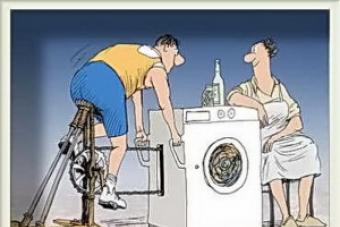Most people do not even suspect that their pressure is severely disturbed, which continues to complicate the state of their body. So what should be the pressure? What is its norm in different people? Read more about this below.
Some information about pressure in humans
It should be borne in mind that this is primarily the level of blood pressure in the arteries, which is an indicator of the state, as well as the work of blood vessels and the heart. Many diseases are manifested by unstable blood pressure, which is why experienced doctors measure it during a physical examination. Most people, that the state of the body is assessed as healthy, have stable and average pressure indicators. But nevertheless, even they often have small fluctuations and disturbances in blood pressure. This can be facilitated by physical activity, excess fluid in the body, stress, and even joyful experiences. But most often, blood pressure disorders are promoted by excess weight, osteochondrosis, blockage of blood vessels by cholesterol plaques, alcoholism, and diseases of the nervous system.
Normal pressure, what are its indicators
Measurement of blood pressure with a tonometer is a clarification with what force the blood presses on the walls of arterial vessels. It is customary to write the obtained digital indicators through a fraction. For example, 130/90 mm. rt. st: 130 is an indicator of the upper pressure, 90 is the lower. But as already mentioned, even in a healthy person, these numbers can be different at different times of the day. So, for example, during sleep, blood pressure decreases somewhat, but upon awakening, the regulatory mechanisms of the body bring it back to normal. And if in the human body, for some reason, these systems fail, then, consequently, the pressure begins to be disturbed.

Normal pressure is an indicator that does not depend on gender or age. The most optimal indicator of healthy blood pressure is considered to be the numbers 120/80 mm. rt. Art. If a person regularly encounters low levels, then this indicates hypotension, if with increased - hypertension. It is a mistake to believe that the age-related increase in pressure is considered normal. It is possible to make a diagnosis of hypertension when a blood pressure of 140/90 mm is established at least three times within a month. rt. Art. Hypertensive patients have the greatest risk of developing vascular and heart diseases, especially at the age of 50. Hypotensive patients are characterized by tonometer readings of 100\60 mm. rt. Art., and although these figures do not represent a mortal risk, they still affect overall well-being.
Night jumps in blood pressure often occur even in people who consider themselves absolutely healthy. In order not to aggravate the problem, it is necessary to be examined in time and make adjustments to the lifestyle.
In recent years, vascular problems have become more and more common. At the same time, not only the elderly, but also young people face jumps in blood pressure. Few people are surprised when, after another stressful situation, the tonometer needle shows not the most pleasant results. But why the pressure rises at night during sleep is not clear to everyone.
When the condition worsens after exercise, most people understand how to respond and what drugs to use. But rising blood pressure at night can raise questions. Definitely, such fluctuations are not the norm.
If blood pressure rises during a night's rest, this is considered a pathological condition. Such jumps are a symptom of arterial hypertension, requiring consultation with a specialist and some examinations. In healthy people, indicators will always be higher during moments of physical activity, and not at rest.
When blood pressure rises while a person is sleeping, doctors call this condition nocturnal hypertension. Such manifestations should not be ignored. If adequate treatment is not carried out, the disease progresses and can provoke the development of a heart attack, stroke and cerebral edema.
Symptoms
When blood pressure rises, in most cases a person feels very ill. But sometimes before going to bed everything was in order, in the morning there are also no deviations from the norm, and the condition is not the best. The thing is that the pressure increased while the person was sleeping. For some time this phenomenon goes unnoticed, but soon the following symptoms will appear:
- lethargy upon waking;
- difficulty falling asleep even late at night;
- causeless awakenings with anxiety attacks;
- feeling of suffocation and lack of oxygen;
- fever at night;
- increased sweating.
If such phenomena occur due to an increase in blood pressure, they cannot be ignored. It is also worth talking to relatives. Perhaps some of them have already been diagnosed with hypertension. This problem often has to be fought by several generations at the same time, since the tendency to the disease is transmitted genetically.
An increase in blood pressure at night is a serious warning sign. Sometimes the treatment may only be to adjust the way of life. But in most cases, it is better to consult with an experienced therapist and cardiologist to rule out serious diseases.
Causes of nighttime pressure increase
To understand what to do and how to be treated correctly, you need to figure out why blood pressure rises at night. It is noteworthy that even during sleep, the human brain continues to process information. However, in healthy people, this fact does not stimulate the growth of blood pressure. Rather, on the contrary, it is somewhat reduced.
There are factors that increase the risk of developing hypertension. In the initial stages, the pressure in a person can increase only at night.

Most often, pressure rises due to such factors:
- a lot of salt in the diet;
- unbalanced diet, overeating at night;
- hypodynamia;
- violation of biological rhythms;
- abuse;
- fast pace of life;
- constant stress.
The reasons for the increase in blood pressure often lie in malnutrition. Some people think they use a little salt. In fact, they forget that most of the products purchased in the store already contain this component. Various preserves, smoked meats and other dishes contain a huge dose of salt. Regular consumption of such food leads to malfunction of the kidneys. The result is high blood pressure.
Often, pressure pills are required for those who do not know how to plan their time or want to do too much. The fast pace of life constantly causes unnecessary worries and fear of failure. It is very important to make a competent schedule in order to reduce such a rush to a minimum.
Stressful situations happen almost every day. Even with a normal state of health, it is important to try to support yourself and not allow strong feelings. This can be done by reducing the amount of negative news viewed. Sometimes treatment includes taking antidepressants.
What to do
Not always in cases where the pressure rises at night, to reduce the readings of the tonometer, you need to take a pharmacy medicine. First of all, treatment should consist in the correction of lifestyle and habits.
To feel good in the morning, you need to take care of a quality night's sleep. It is important to take the following steps:
- end the work day earlier;
- do not engage in vigorous activity before bedtime;
- avoid stress and conflict;
- give up alcohol and coffee in the afternoon.
Undoubtedly, a person will notice how the pressure drops if the diet is balanced and not oversaturated with salt. It is also necessary to reduce the amount of spicy and pickled foods.
Every evening before going to bed it is worth arranging walks in the fresh air. This will calm the nervous system and help improve the quality of sleep.
It is better to plan a visit to the sauna, solarium, fitness and gym in the first half of the day. This will allow the pressure to normalize and be kept normal during sleep.
If the symptoms of hypertension appear more and more often and simple methods do not help to solve the problem, you should seek the advice of a doctor. Before visiting a specialist, it is better to take some time. It is important to clearly indicate the date, time and readings. This will help to correctly establish the diagnosis and understand which pressure can be considered normal, and which serves as a symptom of hypertension.
The attending physician will conduct an examination, examine the manifestations of the disease and prescribe the necessary examinations. This will make it possible to understand why the pressure began to rise. By detecting the disease at the initial stage, you can maintain your health qualitatively and avoid complications!
Blood pressure decreases at night - and this is a physiological norm, due to a decrease in the tone of blood vessels, a slowdown in cardiac activity. In the morning the body is mobilized, blood pressure rises. But many people have an increase in blood pressure at night, why is that?
Violations of the functionality of the cardiovascular system and vascular tone are based on a combination of various factors - an unhealthy lifestyle, chronic stress, comorbidities, bad eating habits, etc.
When the pressure rises at night, this indicates that the patient's biological rhythm has gone astray, pathological processes in the body are observed, so adequate treatment is needed. The danger lies in the fact that many do not notice that blood pressure rises during sleep, respectively, they seek medical help late.
So, why does the pressure rise at night, and what to do in this situation? What treatment normalizes blood pressure and relieves nocturnal hypertension?
Provoking factors
If an increase in blood pressure is detected at night, then they speak of a pathological condition that cannot be observed in a healthy person. Normally, vascular tone decreases during sleep, the whole body is in a relaxed state.
To find out why blood pressure rises at night, what reasons this is to blame, only a comprehensive examination in a medical institution will help.
When the pressure rises in the evening, doctors talk about nocturnal hypertension. The etiology can vary greatly. Many people believe that the brain does not function during sleep, but this is fundamentally the wrong idea.
At night, the internal organ processes the information received during the day. Therefore, in emotionally unstable individuals prone to nervous experiences, blood pressure may rise.
Why does blood pressure increase in the evening and during sleep? Let's single out a list of factors contributing to the increase in these indicators:
- Consuming large amounts of water and food just before bedtime.
- Inactive lifestyle, lack of physical activity.
- Salt abuse.
- Violation of the regime of work and rest.
Blood pressure can rise at night during sleep due to the abuse of alcoholic and caffeinated drinks. Coffee itself provokes a jump, so drinking a drink shortly before bedtime leads to nocturnal hypertension.
Caffeine is found in black and green tea. Therefore, hypertensive patients are advised to give up coffee and tea, replacing them with chicory and herbal decoctions.
Alcohol provokes a spasm of the vascular walls, which leads to a jump in blood pressure. In this case, there is a severe headache and muscle weakness.
Why does blood pressure increase at night?
 At night, blood pressure should be lowered. If it rises, this may indicate some pathologies. Violation of the functionality of the kidneys, especially with the addition of inflammatory processes, provokes fluid retention in the body, leading to hypertension.
At night, blood pressure should be lowered. If it rises, this may indicate some pathologies. Violation of the functionality of the kidneys, especially with the addition of inflammatory processes, provokes fluid retention in the body, leading to hypertension.
Another cause of blood pressure drops at night is the pathology of the musculoskeletal system and spine. These include osteochondrosis, intervertebral hernia, spinal injuries with complications.
These ailments provoke spasms of blood vessels, a significant overstrain of the muscular corset, squeezing of vessels by segments of the spine. A combination of factors leads to the fact that blood pressure rises at night.
Diseases leading to a jump in blood pressure during sleep:
- Sleep apnea (OSA).
- Congenital or acquired heart disease.
- Organic myocardial damage.
- Violation of the structure of the arteries.
Apnea is called stopping breathing during sleep. This usually lasts no more than 15 seconds. At the same time, oxygen starvation is detected, as a result of which the body launches compensatory abilities, which leads to an increase in blood pressure.
If there are several stops in a row within a short period of time, then the concentration of adrenaline in the blood increases, respectively, other symptoms of hypertension associated with the heartbeat appear.
Daily routine and eating habits
 Physical inactivity or low physical activity directly affects the functionality of the heart and blood vessels, and can lead to an increase in pressure during sleep. Etiology, based on the daily routine of the patient, in the modern world provokes the disease most often.
Physical inactivity or low physical activity directly affects the functionality of the heart and blood vessels, and can lead to an increase in pressure during sleep. Etiology, based on the daily routine of the patient, in the modern world provokes the disease most often.
This statement mainly concerns persons whose professional activities are related to sitting in one place - an office worker, a driver, etc. When a person moves a little, the result of this manifests itself relatively quickly.
With physical inactivity, a slowdown in blood circulation is observed, which is fraught with an increase in the resistance of blood vessels, as a result, blood pressure increases, although it should decrease during rest.
When a person sleeps, his body produces substances that contribute to the regulation of the activity of the cardiovascular and endocrine systems. If sleep is extremely short or the patient suffers from insomnia, then the concentration of hormonal components decreases.
Such a pathological effect leads to nocturnal hypertension, an increase in glucose in the body, and endogenous stress.
Hypertensive patients must follow certain rules regarding the diet. Food should be light and low-fat, the last time to eat is recommended 2-3 hours before bedtime. Since a full stomach and intestines press on the diaphragm, blood pressure increases accordingly.
Before going to bed, you should stop drinking liquids, as it activates the increased work of the kidneys, the volume of water in the body increases, which leads to lability of indicators.
Treatment of nocturnal hypertension
 If the pressure increased at night, then the person should understand that this is not normal, so you need to visit a doctor. It is recommended to measure the indicators yourself at night in order to report them to a medical specialist.
If the pressure increased at night, then the person should understand that this is not normal, so you need to visit a doctor. It is recommended to measure the indicators yourself at night in order to report them to a medical specialist.
First of all, you need to visit a therapist. He prescribes diagnostics, laboratory tests and studies, gives referrals to other specialists. In most cases of nocturnal blood pressure surges, treatment is prescribed by a cardiologist.
If blood pressure increases at night, the medication should be taken closer to bedtime. The treatment regimen includes:
- Diuretics.
- Beta blockers.
- Alpha blockers.
- calcium antagonists.
If blood pressure rises slightly at night, doctors do not prescribe drugs, preferring to cope with non-drug methods. In particular, massage procedures, herbal medicine and other methods.
When nocturnal hypertension occurs, the etiology of the occurrence must be established immediately in order to prescribe adequate treatment. It can be medicinal and non-pharmacological in nature.
It is dangerous to start a pathological condition, because it leads to a hypertensive crisis, stroke, heart attack, and other complications.
Those who are interested in why the pressure rises at night during sleep should seriously think about their health status and schedule a visit to the doctor. Hypertension itself is a pathology that has a devastating effect on the circulatory system, but an increase in pressure during sleep can have a much more serious impact on a person’s health and quality of life.
In order to prevent the occurrence of nocturnal hypertension or stop its development in time, you need to know how and why this disease occurs.
Nocturnal arterial hypertension differs from ordinary hypertension in that it may go unnoticed for some time. With an increase in pressure during wakefulness, a person notices a deterioration in well-being and immediately takes action. When this happens during sleep, symptoms of malaise may not appear either on the eve of the evening or in the morning after waking up.
However, the general condition of the body begins to gradually deteriorate, and over time, the following symptoms appear:
- insomnia, night fever;
- awakenings in the middle of the night with anxiety attacks;
- shortness of breath, asthma attacks that appear at night and during the day;
- chills, increased sweating;
- accelerated heartbeat;
- numbness of the limbs;
- puffiness;
- pain in the region of the heart.
As a result, a person’s sleep is disturbed: he becomes lethargic, suffers from headaches. Because of this, memory deteriorates, concentration and performance decrease. If you regularly observe such symptoms in yourself, you should purchase a tonometer and measure before and after sleep. Place the device next to your bed so you can take your blood pressure if you suddenly wake up in the middle of the night. High rates - a reason to immediately consult a doctor.
A nighttime increase in pressure can provoke serious illnesses and cause chronic fatigue and psychological problems. Most of these disorders, in turn, can themselves cause nocturnal hypertension.
There are many reasons why blood pressure rises at night during sleep. In many cases, nocturnal hypertension is the result of neglect of one's own health.
The risk group includes:

Sometimes an increase in pressure at night can be observed with insomnia. As a rule, this is due to psychological stress due to the inability to sleep normally.
Also, an increase in blood pressure during sleep often occurs in people who have long suffered from hypertension. This is a sign that the disease goes into an exacerbated form.
Treatment
The first thing to do, noticing the symptoms of nocturnal hypertension, is to contact a cardiologist. It is especially worth hurrying for those who already suffer from chronic hypertension. Your doctor may prescribe medications to lower your blood pressure or, if you are already taking them, change you to new ones.
The pills are used to lower very high blood pressure or temporarily relieve the symptoms of hypertension so that the person can get a normal night's rest. Do not start taking medicines on your own without the permission of a doctor, otherwise you can harm your health!
To improve your condition, you must first get rid of unnecessary stress and establish a healthy lifestyle:

Proper rest, distribution of mental and physical activity and a balanced diet will help to avoid nocturnal hypertension or even get rid of it without medication.
The main thing is to monitor your condition and not delay a visit to a cardiologist. Otherwise, this disease can become a threat to your life.
During sleep, all processes in the body slow down. For example, pressure drops. This reaction is considered a consequence of the activity of the parasympathetic nervous system. But there are factors that lead to the failure of this mechanism. Many people have high blood pressure. Various factors can provoke this condition. Why pressure rises at night is described in the article.
About pressure
Blood pressure is the pressure that is exerted on the vascular walls by blood. In healthy people, it is at the same level, but sometimes changes occur. Normally, blood pressure can rise during the day with strong physical activity. This is not considered a deviation.
At night, in a healthy person, the level decreases, since the body is at rest, and all processes proceed slowly, the reactions stop. Exceeding the norm is a deviation. It is important to determine in a timely manner why the pressure rises at night in order to get rid of them and prevent complex consequences.
Infrequent events may occur in healthy people after certain events and changes. But the level does not rise much, does not lead to obvious changes in the state, and is restored without intervention. If this happens regularly, it indicates health problems.
Symptoms
Hypertension is often discovered incidentally, and some people are unaware of the diagnosis. Diagnosis is complicated if the phenomenon is observed at night, when a person is resting and does not feel alarming signs.
Recognize the increase in pressure will be obtained by:
- changes in heart rate, increased heart rate for no reason;
- sleep disturbance: long falling asleep, restless, superficial sleep, frequent awakenings, nightmares;
- feeling chills or heat, increased sweating;
- unreasonable and inexplicable feeling of sudden anxiety, fear;
- tingling in the palms and feet, numbness of the extremities;
- edema;
- heaviness, feeling of squeezing, pain in the heart or sternum;
- feeling short of breath, shortness of breath, inability to take a deep breath, asthma attacks;
- fatigue, weakness, drowsiness, headaches in the morning.
These symptoms may appear separately, simultaneously or alternately. Often they are blurred and imperceptible, and in some cases they can be pronounced and obvious. If the symptoms appear frequently or constantly, then you need to consult a specialist.
Causes
Why does blood pressure rise at night? The activity of the cardiovascular system is a complex process that depends on various factors and the work of other human organs. Why does blood pressure rise in women at night? There are many reasons for this phenomenon, among them there are those that are not associated with blood vessels, heart and blood. And they are the same as in men. The factors that lead to this phenomenon are listed below.

Nutrition
This is one of the main reasons why blood pressure rises at night. If there is a lot of salt in the food consumed, this leads to hypertension. Salt is able to retain fluid in the body, and water is an important part of the blood. With an excess of salt in the diet, there is an increase in blood volume and strong pressure on the walls of blood vessels. Dangerous is the use of a large number of salty foods in the evening.
The pressure can rise with overeating at night. Eating in large quantities leads to increased work of the digestive tract. Normally, the digestive organs practically do not work at night, and if a high load falls on them, blood flow is observed because of this, and blood circulation is also accelerated. Even with a full stomach, the nearest organs are squeezed, which causes an increase in pressure.
Lifestyle
Why does blood pressure rise at night during sleep? This happens with systematic stress and overwork. These conditions lead to vasospasm, heart palpitations. The level is likely to rise if a person has had stress and strong physical, mental, emotional stress in the afternoon.
A sedentary life can also affect pressure. With a decrease in activity during the day, blood circulation slows down, blood flow worsens. If the reduced activity persists, the resistance of the peripheral vessels increases, and the pressure rises.

The reason may be a change in biological rhythms and a violation of the mode of wakefulness and sleep. Normally, high activity occurs during the day, and at night, all body systems are at rest. If the work is done at night, then the organs are rebuilt. An increase in pressure will be a protective reaction to an increase in activity.
The presence of bad habits also leads to an increase in pressure. Smoking causes narrowing of the lumen of the blood vessels, so the blood will put more pressure on them. The abuse of alcoholic beverages increases the heart rate. First, vasodilation is observed, and the pressure may decrease, and then a spasm of the walls occurs, which increases the level.
Diseases of the kidneys and adrenal glands
The kidneys perform the function of timely removal of fluid from the body. In case of failures, water does not have time to be removed, increasing blood volume and increasing pressure on the walls of blood vessels. An increase in the level occurs in chronic or acute renal failure, as well as in glomerulonephritis and pyelonephritis.
The adrenal glands synthesize hormones, including adrenaline and cortisol, which lead to stress. With excitation, blood circulation becomes stronger, leading to pressure on the walls of blood vessels. An increase is likely with tumors of the adrenal glands, malfunctions of the hypothalamus and pituitary gland.
Respiratory disorders
This is another reason why blood pressure rises at night during sleep. This happens when there is a problem with breathing. Hypertension is usually detected in people who snore, with apnea, the risk of increased pressure increases. Stopping breathing leads to a sharp decrease in the concentration of incoming oxygen in the blood.

The adrenal glands will secrete the fear hormones cortisol and adrenaline, which feed the brain and nervous system with a threat alert. Spasms occur in the vessels, the tone of the walls increases, the lumen narrows, and as a result, pressure increases.
Excess weight
The reason why the pressure rises at night may be due to excess body weight. Because of this problem, the load on the body increases, the heart and blood vessels suffer from it.
The myocardium (heart muscle) pumps blood intensively to supply fatty tissues with it. Therefore, the pressure exerted on the walls of the vessels increases. The sleep of an obese person on his back is dangerous: the lungs are compressed and the heart is overloaded, which causes respiratory failure and changes in heart rhythm.
Caffeine
Often, blood pressure rises with the abuse of coffee and other caffeinated drinks. Healthy people should drink no more than 3 cups of coffee a day, and with hypertension, this drink is prohibited. Especially it should not be done at night.

If a person takes other drinks with caffeine throughout the day, in addition to a short-term increase in pressure, insomnia appears, the heart rate changes, a feeling of heaviness in the temples. To sleep soundly, you can drink coffee only in the morning and in moderation. Also, do not drink strong tea and energy drinks in the afternoon.
stress
Tension at home and at work, many problems, lack of time and energy to complete tasks - this leads to stressful situations. Emotional overstrain during the daytime affects well-being at night and leads to increased pressure. According to statistics, chronic stress is the main cause of hypertension. If after a working day the pressure has increased, all measures should be taken to eliminate stress.
These are all the reasons why a person's blood pressure rises at night. In any case, this is dangerous, therefore, urgent disposal of the provoking factors that lead to this is required. Treatment should be carried out under medical supervision.
Risks and Threats
Why is this phenomenon dangerous? It is often not noticed, because at night a person sleeps, his consciousness changes and partially turns off. Sudden drops can lead to a hypertensive crisis, microstroke or stroke, heart attack. Neither the victim nor his relatives notice a change in condition. If there is no timely assistance, this leads to dangerous consequences, including death.

Diagnostics
To determine why the pressure rises at night in a dream, diagnostics will allow. You need to contact a therapist. The doctor performs an examination of the patient and prescribes the diagnosis:
- Dopplerography.
- Computed or magnetic resonance imaging.
- Ultrasound of the heart, kidneys.
- Analysis of urine.
After receiving the results of the examination, the therapist writes out a referral to a cardiologist or other specialist. So it will turn out to reveal not only why the pressure rises sharply at night, but also to prescribe treatment.
Treatment
Each person may have a different reason why blood pressure rises at night? The method of therapy also depends on this. Treatment is usually done with the following measures:
- Taking medication to lower blood pressure. The last dose is taken at bedtime to reduce the risk of nocturnal hypertension.
- Diuretic medicines are used for kidney diseases, they allow you to timely and fully eliminate excess fluid.
- Regardless of why blood pressure rises at night, treatment includes lifestyle changes. You should not allow overwork and stress, it is important to observe the daily routine, work on the basis of the biological rhythms of the body. You should not work at night, you should rest more often, sleep at least 7-8 hours a day. During the day you need physical activity. Bad habits must be eliminated.
- Needs a power adjustment. It is necessary to reduce the amount of salt eaten (the norm is 5 grams). No need to overeat at night: dinner should be light, and dinner should be 2-3 hours before bedtime.
- It is necessary to normalize weight: excess weight can increase the risk of hypertension.
- Helps therapeutic massage - relaxation techniques. Procedures are performed with the help of an experienced massage therapist.
- To restore pressure, folk remedies are used: linden tea, decoctions, infusions of mint, motherwort, lemon balm, valerian. Take them at night.
Preventive measures
The pressure will drop if you follow the rules of prevention:
- Do not exceed the norm of salt, overeat in the evening.
- We need a healthy lifestyle, it is required to maintain physical activity during the day, to prevent overwork in the evening.
- It is necessary to follow the regime of sleep and wakefulness.
- You should not allow stress, you need to learn how to relax and adequately respond to irritating factors.
- Regular examinations are required. Visit a doctor.
- If the pressure has already increased, then you need to control it using a tonometer.

Hypertension at night is considered dangerous, but you can get rid of the problem if you act competently and in a timely manner. To maintain health, the problem must be taken seriously.






